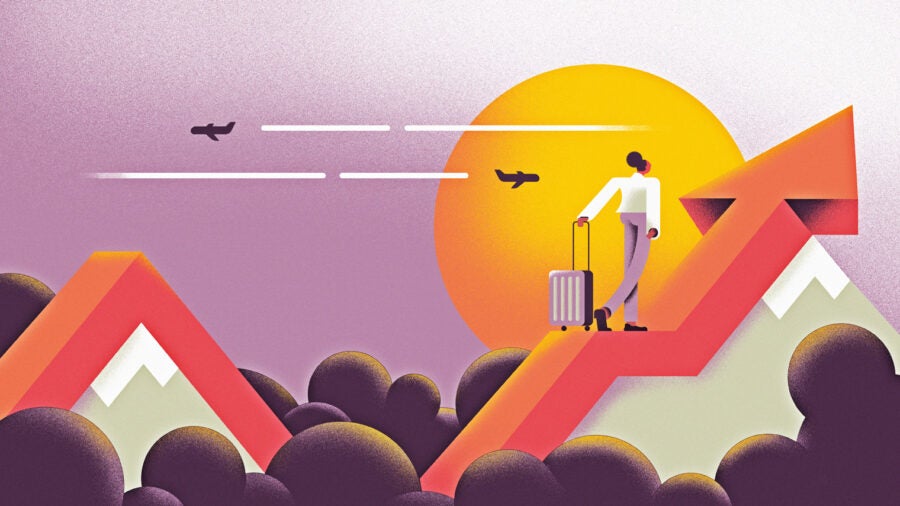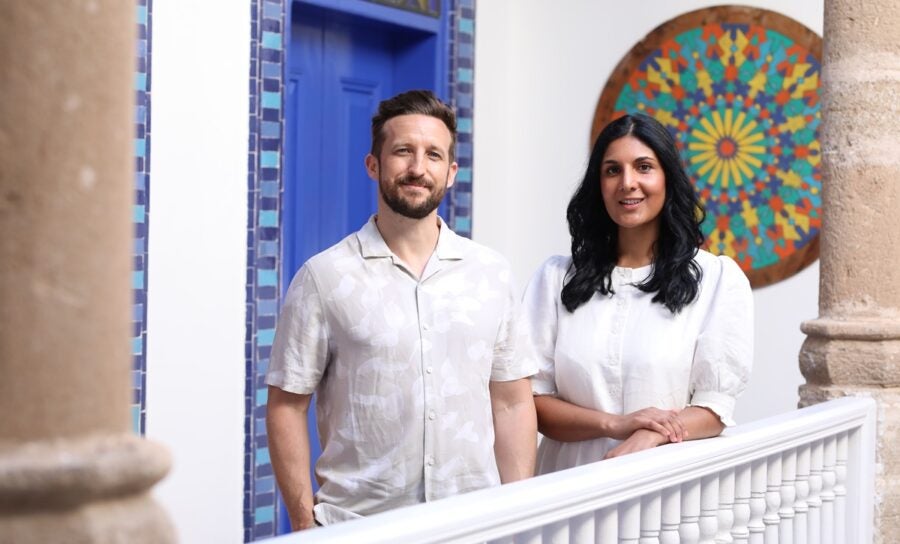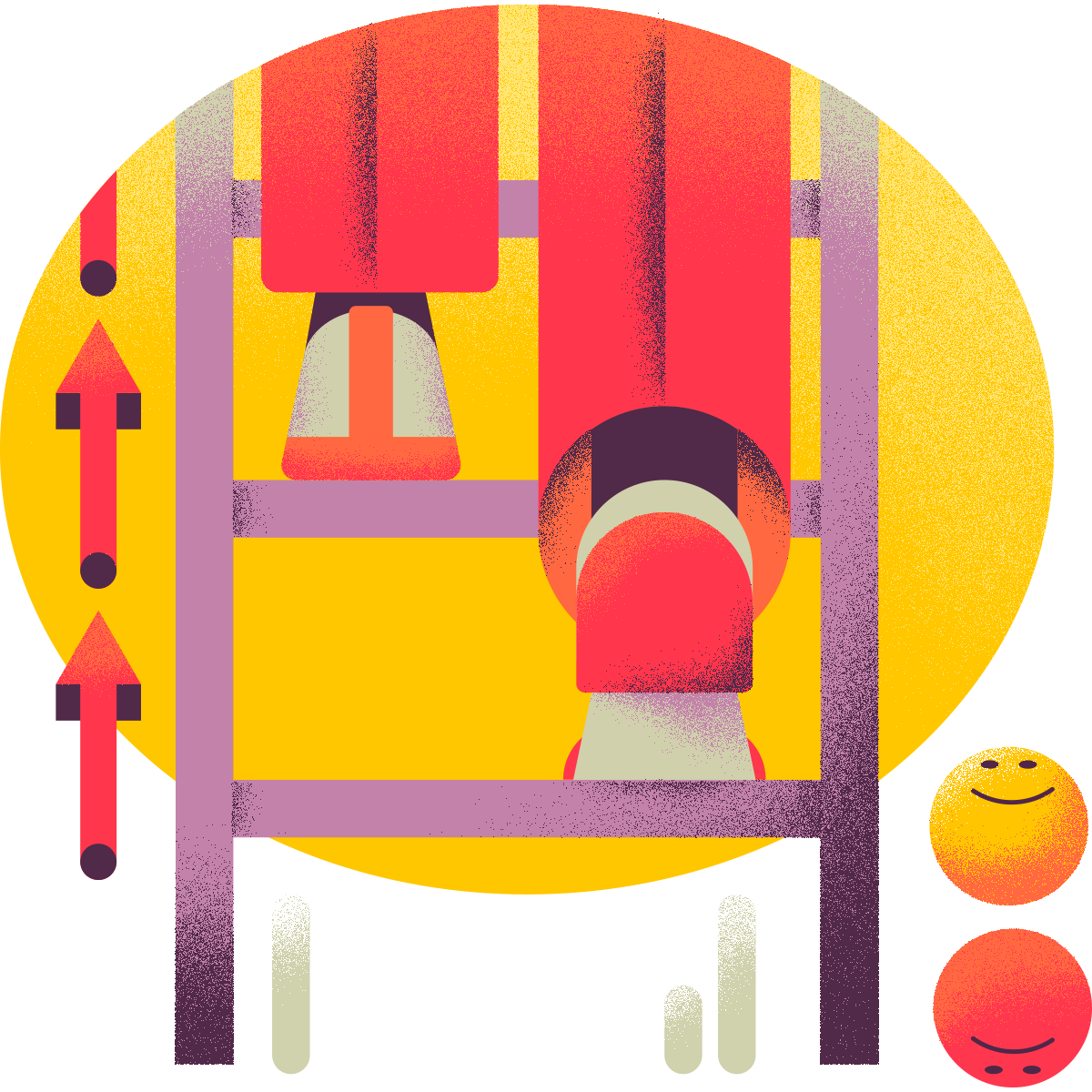
Coming into 2020, adventure travel company Flash Pack was doing well. Having grown every month since its inception in 2014, it had a turnover of £20m and a team of 60. But at the start of that year, they saw the first signs of what was to come.
“January is normally a good month,” explains CEO Radha Vyas. “But we saw bookings start to flatline for the first time in our history.” The decline was so dramatic that the leadership team assumed it was a conversion issue or a problem with the website, but after a two-week investigation they realised bookings were down by 67% in just one area: East Asia.
We all know what happened next. On 13 March 2020, then-President Donald Trump announced he was closing US borders and the world followed suit, spelling disaster for thousands of businesses, including Flash Pack. “Revenue fell off a cliff overnight,” recalls Vyas.
The beginnings of business brilliance
To understand the extent of this fall, it is important to understand Flash Pack’s origins. Vyas and her husband, the company’s CMO, Lee Thompson, came up with the idea on their first date in 2012.
It’s hard to fix the plane when it’s already in the air
They shared a frustration that no companies were catering for solo travellers in their 30s and 40s. They didn’t want to go backpacking with 20-year-olds or on cruises with pensioners. Flash Pack would offer luxurious adventures for individuals with the money to pay for them.
Their backgrounds made them perfectly suited for this. Vyas had a consultancy business, raising money from high-net-worth individuals for the not-for-profit sector. Thompson was a photojournalist whose viral selfie at the top of Rio de Janeiro’s Christ the Redeemer statue gave Flash Pack its first real boost.
In 2018, Flash Pack was one of the fastest-growing startups in the UK and, up to 2020, it would often see 300% or 400% annual revenue growth.
How to react when disaster strikes
Business was booming, but the couple had been sensible about it. They knew that the winds of fortune can make running a travel company challenging. “We always expect macro problems,” explains Thompson. “For example, we’ve always had a Sri Lanka trip and that has had its share of issues. We knew we had to be diverse. But that day in March every border in every country was closing. Our business had just been switched off.”

What followed was a maelstrom of chaos. Every member of Flash Pack’s team became a customer service rep as the phones rang off the hook with people wanting to cancel upcoming trips, demand refunds or, most worrying of all, request help in getting home from everywhere from Morocco to Costa Rica.
Vyas and Thompson spent the next few months doing what they could but, eventually, they had to let all their staff go and file for administration in November 2020, by which point they had lost so much money they couldn’t even afford to send their daughter to nursery.
“The timing was brutal because we had been flying high,” says Vyas. Thompson agrees. “It did feel like our dream had just been torn apart.”
But, he continues, very quickly their entrepreneurial spirit reasserted itself and the couple began to explore ways to save the company. In 2021 they remortgaged their house to buy back the business from the administrators and secured a multimillion pound investment. They relaunched a year after they filed for administration.
What Flash Pack founders learned from failure
So, what have they learnt from the experience? The biggest lesson for Vyas is simple. “We should not have bootstrapped the company for as long as we did.”
Until Covid struck, the company had several offers for funding. “We were just about to go into a massive series A round. We had been inundated by VCs from all over the world; funds that had backed Slack, Facebook and Spotify were sending us presents at home,” she says. Timing, unfortunately, is everything and once the pandemic hit, the series A funding opportunities dried up.
“Covid wasn’t our fault, which was a relief. As a CEO, everything is normally your fault,” Vyas continues. “But there were still decisions we made that led to our demise. If I had made that decision to fundraise a lot sooner, we probably could have survived Covid.”
Making the changes that make a difference
To get back on their feet, Vyas and Thompson sought out investors and found a fund that understood their vision for community travel and saw that it was going to come back. “They’re a big fund with deep pockets,” says Vyas. “We’re not bootstrapping any more.”
They’ve made other changes too. “We pay ourselves more,” says Thompson. “In the first company, we underpaid ourselves massively. All our work was tied into equity which, at the end of the day, meant nothing. So we nearly lost everything.”
Vyas agrees: “We had that mentality of ‘no founders should pay themselves,’ but the amount of time I spent worrying about my personal finances was time I wasn’t focused on building a big business.”
The timing was brutal because we’d been flying high. It felt like our dream had been torn apart
Like many people, post-pandemic they also reassessed their work/life balance and now make sure they can clock off at 5pm and spend time with their daughter.
They have also taken this time to get closer to their customers. “We’re trying to be very customer-centric,” Thompson explains. “Now we have a community of customers that we can reach out to when we’re making key decisions.”
That means that when thinking about pivoting to a new product or introducing a new trip, the pair now have a sounding board made up of the people most likely to enjoy these new additions.
What the future holds for Flash Pack
The changes seem to be working. Some 18 months after relaunching, Flash Pack had exceeded its pre-Covid goals and is back to growth (100% year-on-year, so far). In the last 16 months, they’ve hired 65 employees, with plans to nearly double that over the next year and they have just raised £5m to fund the company’s expansion into the US.
And the co-founders’ outlook is bright. “It’s easier to grow now,” says Thompson. “After Covid, more people want to connect; they’re looking for ways to meet new people.”
Before Covid, the pair were educating the market about the concept of travelling solo within small groups. Now, though, loneliness among people in their 30s and 40s is a growing problem and single households are growing fast. “All the trends are pointing in the right direction,” he says.
The collapse of Flash Pack 1.0 has cleared the ground for a much stronger organisation, according to Vyas. “It’s hard to fix the plane when it’s already in the air,” she says. “Over the years you build up bad decisions, culture debt, financial debt.” Starting from scratch has allowed the pair to craft a business with intention, learning from their mistakes, and having developed real confidence in their leadership skills.
Most importantly of all, “our ambition hasn’t been stifled. If anything, it has lit a fire under us,” says Vyas. “Through failure, you never lose the knowledge and experience you’ve accumulated. So we never felt we were starting from the bottom of the mountain.”
Let’s hope they can achieve peak performance once more.

Coming into 2020, adventure travel company Flash Pack was doing well. Having grown every month since its inception in 2014, it had a turnover of £20m and a team of 60. But at the start of that year, they saw the first signs of what was to come.
"January is normally a good month,” explains CEO Radha Vyas. “But we saw bookings start to flatline for the first time in our history.” The decline was so dramatic that the leadership team assumed it was a conversion issue or a problem with the website, but after a two-week investigation they realised bookings were down by 67% in just one area: East Asia.
We all know what happened next. On 13 March 2020, then-President Donald Trump announced he was closing US borders and the world followed suit, spelling disaster for thousands of businesses, including Flash Pack. “Revenue fell off a cliff overnight,” recalls Vyas.




